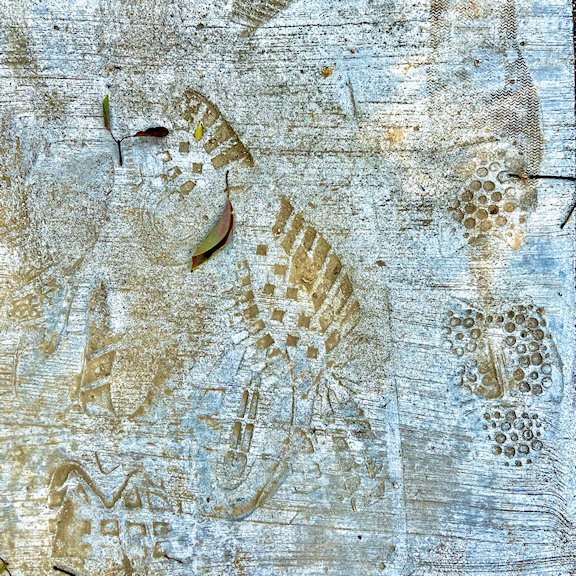Our apartment in German Colony was only a ten-minute walk to the gardens that overlooked the old city. To the left stood the high limestone walls of Jerusalem, to the right Mt. Zion itself with its trees and tiers of white buildings, the blue cone roof of Dormition Abbey, beside it the white bell tower. In the evenings all that fall Melanie and I took walks to the gardens, the limestone walkways lined with rosemary, olive trees everywhere. And this view of Jerusalem.
We live here, we said to each other. That’s Jerusalem. That’s it. Right there.
But we also lived there. We went to the grocers, the post office, the ATM. The gas station, the butcher shop, the laundromat. I made my routine drives down to Tel Aviv to teach my courses and attend meetings. All that.
We lived there.
Which meant dealing with Shabbat. That pesky Saturday when nothing—or very little—was open. No news in how we Americans felt: Even though we are believing Christians, we still found it difficult to adjust.
Of course we were used to going where we needed to go and doing what we needed to do. Yes, we understood the holiness of the day, God’s call to observe the Sabbath one of those really real Commandments.
Still, those first few weeks we were sometimes a little piqued about the whole thing. Especially if we’d missed going to the grocer’s, or the butcher’s, or just wanted an Everything with Bulgarian cream cheese from the bagel place down the street.
But one Saturday early on we decided to take a mid-morning walk to the gardens, because there wasn’t a whole lot to do. And the bagel place was closed.
Here was the rosemary, the olive trees. The limestone walls of the city, that blue cone roof and bell tower.
But there were also people out walking. A lot of them. Young people, old. Families. Couples. Many were Orthodox of one kind or another, the men with their hats, the women with their long skirts and scarves. Boys with their kippahs, girls in pretty dresses.
Then the dim bulb of understanding came to us, the unsurprising no-news of what a Sabbath really is. The lifelong call finally, finally made manifest to the weak-eyed and hard of hearing.
This is a day off.
This is a day of rest.
And the Commandment in full seemed to fall into place: I have created you in My image, and I want you to enjoy one day of rest a week, because I know the joy of that peaceful day. This rest I offer you is so important it is in fact holy. So take this day off to rest in My Name.
Nothing new. At all. But a discovery we two made one Saturday morning in Jerusalem.
“Shabbat Shalom,” these people out walking in the gardens called to each other, and to us. Peace to you this Sabbath.
“Shabbat Shalom,” we said in return, and began to understand.
___
Bret Lott is the author of fourteen books, including three collections of essays. “Sabbath” is from his forthcoming collection Cherries on the Golan, Olives in Jerusalem.


6 comments
Maggie Kast says:
May 20, 2021
Lovely. Such a beautiful experience of letting go of preconceptions and sinking into the real.
Art Fahy says:
Jun 1, 2021
This truly is a life lesson to learn. Taking a block of time to be present. To see the world and how it can be. Being present can be a cleansing of the soul and strengthening of character.
Crystal Byers says:
Jun 30, 2021
Ten years ago, I had the pleasure of visiting Jerusalem and the garden of Gethsemane with my mother. Eighteen months ago, I had the pleasure of sitting in a beach house in Galveston, Texas, for a writing retreat with Bret Lott, the epitome of shalom. He even cooked for my cohort.
Greg says:
Jun 5, 2021
Thanks, Bret, for sharing this. It brings me back to my visit to Jerusalem two years ago, but it also reminds me of how countercultural practicing shabbat is. I think we all thought we’d come out on the other side of this pandemic monk-like in our appreciation for community and silence, and now that things are turning toward normal, it’s clear that practicing a sabbath isn’t part of our DNA, but is something we need more than ever. I’ll definitely be sharing this story with my students next year. Thank you!
Margie Hord says:
Jun 21, 2021
It reminds me of the old days when there was basically no shopping on Sundays, and how my roommate at Wheaton College amazed me in that on the Lord’s Day she didn’t do homework, so disciplined herself to finish beforehand. Occasionally I tried to imitate her. Just setting aside a day for rest and worship is very meaningful.
Ken says:
Aug 2, 2021
This was a joy to read, a lovely beginning.